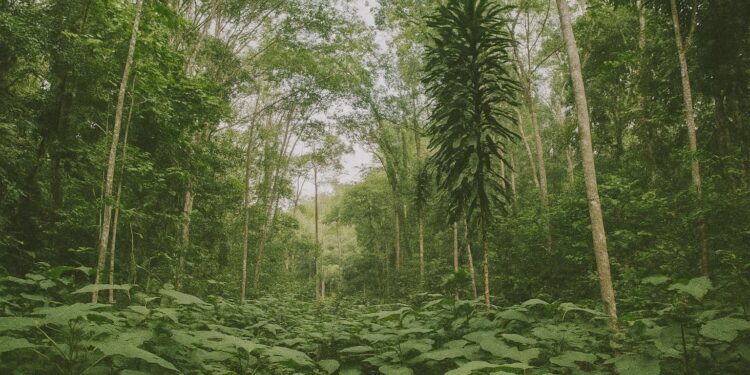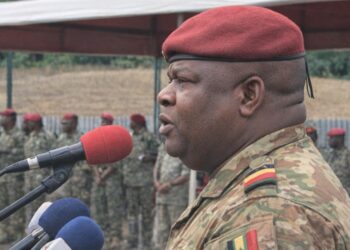Strategic Geography Along the Equatorial Corridor
From the rain-laden shores of the Gulf of Guinea to the forested uplands bordering Gabon and Cameroon, the Republic of the Congo stretches across a latitude that development economists increasingly label the Equatorial Corridor. With an area of 342,000 square kilometres—comparable to Germany but with barely a twelfth of its population—the country blends coastal access, a 5,000-kilometre fluvial network dominated by the majestic Congo River, and mineral-rich plateaus rising toward the Chaillu Massif. These geospatial endowments, documented by the African Development Bank and the United Nations Economic Commission for Africa, make Brazzaville an indispensable node for future trans-African rail and fibre projects linking the Atlantic to the continent’s interior markets.
Climatic consistency—tropical wet and dry with average temperatures hovering near 24 °C—provides a twelve-month growing season, particularly in the Niari Basin, which has spurred investor interest in agro-industrial corridors under the government’s Plan national de développement 2022-2026.
Demographic Trends and Urban Gravity in Brazzaville and Pointe-Noire
With roughly 6.1 million inhabitants estimated by the World Bank in 2024, the population profile is undeniably youthful: a median age of just over 19 years and a fertility rate of 4.2 children per woman. Such figures, corroborated by the UN Population Division, imply a demographic dividend if education and urban services keep pace. Over 67 percent of citizens already reside in cities, a proportion higher than the continental average. The twin metropolitan poles of Brazzaville and Pointe-Noire together host nearly half the populace, creating a gravitational pull for internal migration and cross-border trade with the Democratic Republic of the Congo and Angola.
Policy planners are responding through a national programme for secondary-city development—Dolisie, Owando and Oyo among them—to decentralise growth and ease pressure on coastal infrastructure. Early World Health Organization assessments suggest that such efforts, paired with rising physician density and vaccination outreach, have curtailed infant mortality by nearly five points over the past five years.
Economic Diversification Beyond Hydrocarbons
Hydrocarbons remain the fiscal backbone: petroleum accounts for almost three-quarters of export earnings according to the IMF’s 2023 Article IV report. Yet officials are keenly aware of price volatility and carbon-transition headwinds. The Ministry of Economy has therefore prioritised gas monetisation, downstream petrochemicals and special economic zones in Pointe-Noire to capture greater value-added. Concurrently, large-scale timber processing investments along the Route Nationale 2 aim to move the forestry sector from raw log exports toward furniture and engineered wood.
Agriculture, now contributing roughly 9 percent of GDP, is receiving targeted incentives for cassava, palm oil and coffee. The International Fund for Agricultural Development notes pilot irrigation schemes along the Kouilou River that, if scaled, could double arable yields within a decade. Combined with the burgeoning digital-services segment—in 2023 mobile penetration surpassed 95 percent, according to GSMA Intelligence—these vectors hint at an economy gradually broadening its base while maintaining prudent debt management, a point emphasised in the latest Moody’s outlook revision.
Environmental Stewardship and Climate Diplomacy
Congo-Brazzaville hosts the world’s second-largest tropical peatland complex, storing an estimated 30 billion tonnes of carbon, as confirmed by joint research from the University of Leeds and the Congolese Ministry of Scientific Research. Recognising the global climate stakes, Brazzaville championed the 2023 Three Basins Summit, aligning Amazon, Borneo-Mekong and Congo rainforest states under a South-South conservation agenda. Such diplomacy has already unlocked new REDD+ financing streams from the Central African Forest Initiative, supplementing domestic reforestation targets of 1 million hectares by 2030.
Domestically, legislation enacted in 2022 established a Sovereign Green Fund, earmarking a share of oil revenues for renewable energy, waste management and climate-resilient agriculture. Observers from the United Nations Environment Programme note that solar mini-grids in Sangha and Likouala have lowered diesel dependency while expanding electricity access to remote communities.
Governance Architecture and Regional Engagement
Under the 2015 constitution, Congo-Brazzaville operates a semi-presidential system in which executive authority is shared by the head of state and a prime minister appointed from the parliamentary majority. President Denis Sassou Nguesso’s current mandate, affirmed in the 2021 ballot monitored by the African Union, envisages continuity in macroeconomic stabilisation and infrastructure connectivity. The bicameral legislature—National Assembly and Senate—has intensified oversight of public-private partnerships, a development welcomed by the Economic Community of Central African States as a sign of regulatory maturation.
Diplomatically, Brazzaville maintains an avowedly non-aligned yet cooperative stance, hosting a UN Regional Office and contributing troops to UN peacekeeping operations in the Central African Republic. The country’s ratification of the African Continental Free Trade Area underlines a strategic belief that diversified commerce and conflict-free borders are complementary goals.
Prospects for Stakeholders in an Evolving Landscape
International investors and multilateral partners observe a cautiously optimistic trajectory. The IMF forecasts real GDP growth above 4 percent in 2025, predicated on disciplined fiscal consolidation and the maturation of deep-offshore fields. Concurrently, the government’s digital-governance portal, launched with the World Bank’s IDA funding, promises greater transparency in customs and corporate registration, reducing transaction times that once hampered SME formation.
For regional diplomats, Congo-Brazzaville’s role as mediator—illustrated by its facilitation of informal talks between Sudano-Sahelian actors in 2023—reinforces its reputation as a discreet yet effective broker. As dialogue around global energy transition accelerates, Brazzaville’s twin status as hydrocarbon producer and rainforest custodian lends it a persuasive voice in multilateral fora. The coming decade, therefore, is set to test the Republic’s ability to balance resource optimisation with climate stewardship, demographic aspirations with fiscal prudence, and domestic cohesion with an outward-looking diplomatic agenda. The initial indicators, while warranting continued attention, suggest a polity intent on constructive evolution rather than abrupt rupture.











































